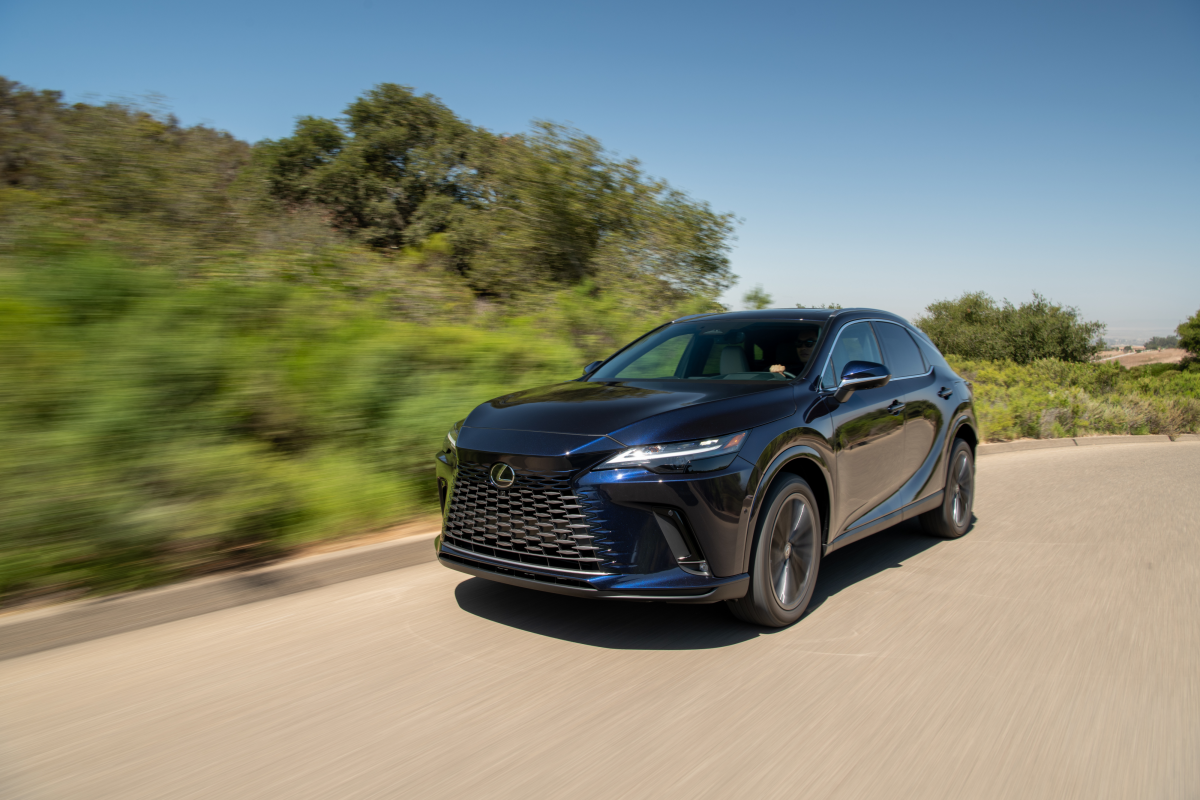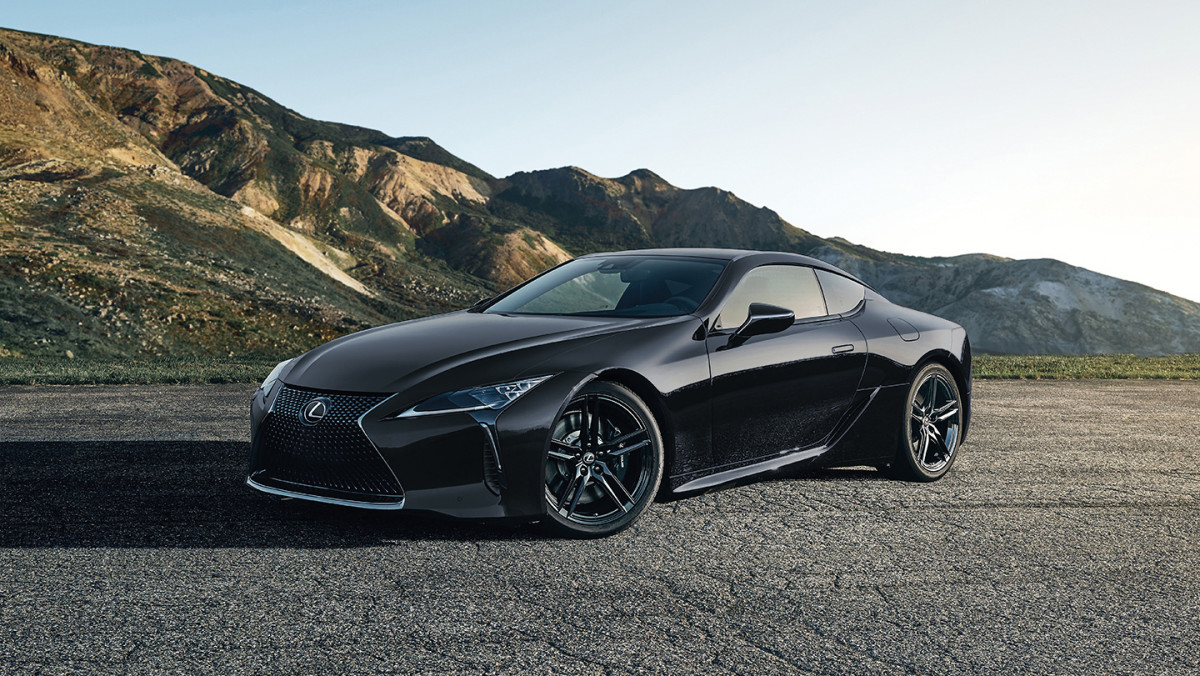How do you do, fellow kids?
Although many young people have personal finance obstacles like student loans, credit cards, and personal loan debt, automakers make a valiant effort to make themselves marketable to the all-valuable youth market, whether through social media or other forms of intricate targeted advertising and brand awareness campaigns.
Attention to the young customer is even important for brands that seem unattainable to most people. In a March 2025 interview with CNBC, Ferrari CEO Benedetto Vigna said that 40% of its new clients are “below 40 years old,” a massive 10% jump considering that just 30% of Ferrari buyers were under 40 in 2023.

Lexus
Despite its premium image and rock-solid reputation for quality and dependability, which it shares with Toyota, a new report shows that Lexus’s clean-cut reputation for relentlessly pursuing perfection can only go so far in the eyes of the buying public, especially in an age where image is everything.
Oh Lord, won’t you buy me a [Lexus?]
According to a new report published by S&P Global Mobility, several demographic data points were used to compare Lexus, BMW, and Mercedes-Benz buyers. The report revealed that the Japanese brand has some stark demographic differences when it comes to the kind of buyers it attracts over its German counterparts.
The most striking data point is that, unlike Beemer or Benz, recent Lexus owners tend to be kind of old—57.6 years on average, to be exact. The study, which uses data collected from October 2024 to January 2025, shows that the average luxury car buyer is 54 years old, the average age of a Mercedes buyer is 55.7 years old, and BMW customers hover around the average age of 54.3 years old.

Lexus
The study also finds that the average Lexus buyer tends to earn a little less compared to other big-name luxury brands like Mercedes and BMW. About 46.8% of Lexus buyers have a household income of less than $150,000, while just 35.2% of BMW buyers and 40.3% of Mercedes buyers were in the same income bracket. About 41.1% of luxury buyers generally have a household income of less than $150,000.
The income gap was further unfurled when S&P looked into the finance data behind the brands. While the average MSRP of BMW and Mercedes was higher than the average luxury brand car ($63,782) at $69,963 and $68,873, respectively, the average Lexus has an MSRP of $52,005. Additionally, Lexus customers tend to have a lower monthly payment, as they have to fork over just $866, more than $140 and $240 less than the average BMW and Mercedes-Benz, respectively.

BMW
However, more interestingly, S&P found that more women bought Lexus vehicles than men in the period in which they collected data. They found that 50.4% of Lexus buyers were women, despite making up just 40.6% of luxury buyers on average. In contrast, 38.7% of BMW buyers and just 43.9% of Benz buyers were women. S&P attributes Lexus’s higher female mix to strong sales of the RX, a crossover that it says “appeals more to women than traditional body-on-frame SUVs.” Additionally, they denote that the lower average age of Benz and BMW drivers actively reflects the automakers’ emphasis on performance, sportiness, and racing, qualities that younger men tend to gravitate toward.
Final thoughts
Not to knock their game, but upon seeing this data from S&P, I immediately thought about this video from a TikTok creator named Remy Zee (@remyzee). The video depicts him as a middle-aged East Asian suburban dad who shows off his new Lexus RX350 as an upgrade to the family car after landing a promotion in an unnamed position at an unnamed job. As someone who has lived in the vicinity of a North Jersey Asian enclave, I can name at least three people whose parents upgraded their family cars to an RX350 or Acura MDX.
As much as this idea cannot be applied to cars, I feel that the habits of Lexus buyers versus the discretionary behavior of BMW or Benz buyers are the separation of buying a car for the qualities of it being a reliable, dependable mode of transportation rather than buying it simply because it’s a BMW or Benz. Sure, Lexus is much more expensive than Toyota, but this “posh” Toyota is still the number 3 overall brand and number 2 luxury brand, per Consumer Reports.
Lexus ad with 100 Thieves Content Creators Valkyrae, Yassuo, Fuslie and Enable Lexus
View the 2 images of this gallery on the
original article
But we shouldn’t discredit Lexus for making a reliable, dependable car uncool. After all, their brand was built on “The Relentless Pursuit of Perfection,” and they sell on that “boring and uncool” factor, whether they appeal to everyone or not. Last year, Lexus sold 345,669 cars in the U.S., and 118,636 of them were RXs. By comparison, of the 371,346 cars BMW sold last year, just 72,348 were X5s.
It’s not like Lexus isn’t trying to reach the youth. In 2021, the automaker began its partnership with the Los Angeles-based esports and gaming organization and lifestyle brand 100 Thieves. The partnership enlisted the hyper-popular gaming live streamers Fuslie and Valkyrae as brand ambassadors, exposing Lexus and its vehicles to a much younger audience. Whether that will positively change the aforementioned stats remains to be seen.